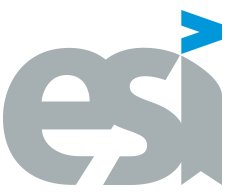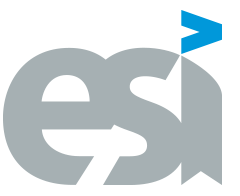Shortcuts

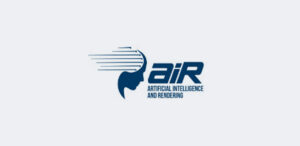
The Artificial Intelligence and Representation (AIR) research group was established in 2014 at the University of Castilla-La Mancha, and since then it has established its headquarters at the Escuela Superior de Informática (ESI) in Ciudad Real, in order to promote the study, design, development and practical application of Artificial Intelligence techniques for solving real problems in the framework of R&D projects with companies or as research projects, in which ESI students have the opportunity to collaborate and even write doctoral theses.
Its members have experience in the study of knowledge representation formalisms and their intelligent manipulation, highlighting the graphical representation of information in the context of augmented reality and the optimization of the non-interactive rendering process, and the development of systems learning, decision systems, knowledge-based systems, expert systems, multi-agent systems in various fields of application, highlighting electronic commerce and video surveillance. It is in this line where they develop their projects.
The AIR research group focuses its research on three axes, which determine its lines of research. In the first place, the Applied Artificial Intelligence axis determines the lines of Intelligent Surveillance, Mobile Robotics and Machine Learning. Secondly, the Visualization and Rendering axis is associated with the lines of Augmented Reality, Realistic Image Synthesis and Automatic Analysis of Movements. Finally, the Electronic Commerce axis is approached from a general perspective focused on business design and development. in which algorithms based on AI techniques are deployed and developed, focused on improving internal processes and the user experience.
David Vallejo Fernandez
David.Vallejo@uclm.es
Phone: +34 926 29 53 00 (Ext. 6494)
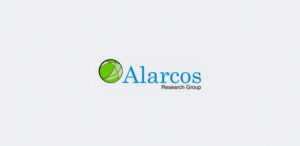
The research group focuses its work on developing new methods, techniques, tools and processes that help software and computer engineers build higher quality information systems. The Alarcos group deals with numerous lines of research, with special emphasis on aspects of software measurement and quality, improvement of software processes, knowledge management, software analysis, design, testing and maintenance, and software security and auditing.
The research group develops numerous research projects on these lines, both regionally and nationally as well as internationally, and collaborates with numerous companies in the sector, offering active technology transfer and consulting services. Additionally, the group offers training programs to the company, in the most advanced technologies and methodologies in the field of quality software development.
The Alarcos group is currently developing numerous lines of research, all of them related to software quality, which can be grouped as follows:
Dr Mario Piattini Velthuis
Mario.Piattini@uclm.es
Phone: (+34) 926 295 300 ext. 3715
Fax: (+34) 926 295 354

The ARCO group focuses its research on the design of complex heterogeneous systems (hardware-software) and the development of advanced communications services. The members of the group have extensive experience in carrying out R+D+i projects, having participated in numerous projects with public funding, both national (Ministries of Science and Innovation and of Industry, Junta de Castilla-La Mancha, etc. ) and international (European Union, NATO, Integrated Actions...).
As a university research group with a marked vocation towards technology transfer, the relationship with companies in the sector has been especially strengthened through projects financed both through institutional programs (PROFIT, CENIT...) and by the companies themselves, all of them leaders in the ICT sector (Indra, Telefónica I+D, Tecnobit, Infoglobal...). In this area, the group also offers training and consultancy services both in the aforementioned areas and in development based on free software.
Design of complex Heterogeneous Systems (Hardware-Software):
This area of research is focused on the development of methodologies and tools for the design of complex systems with both hardware and software components (embedded systems). It includes aspects of specification, verification, planning and assignment, hardware synthesis, software code generation, simulation, prototyping..., with special emphasis on design on reconfigurable architectures. In particular, the work focuses on the definition of architectures and methodologies that facilitate the transparent integration of hardware and software elements, allowing an interaction between said elements independent of their location, their form of implementation and the communication mechanisms that are established. between them, at the same time that their subsequent reuse is facilitated in the future development of new systems.
Advanced Communications Networks and Services:
Within this line, the use of distributed systems and communications infrastructures is addressed to offer new generation services (digital home, mobile services, remote surveillance...). The work focuses on the definition of software architectures (through the use of middleware) that, using both wired and wireless communication technologies and including embedded systems, sensor networks, etc., allow the integration of heterogeneous networks and systems and the creation of and modeling of new services based on communications. These types of services and their application in environments such as homes, offices, large public spaces... are allowing the development of new areas of research that have made it possible to coin terms such as ambient intelligence and ubiquitous computing.
Dr. Juan Carlos Lopez
Phone: (+34) 926 295 300 ext. 3739
Fax: (+34) 926 295 354

This group's objective is to apply new computer engineering methods, techniques, tools and processes to scientific and technological development in the areas of Educational Computing and e-Learning Systems and Computer-Human Interaction. It has proposed new techniques for the design and development of web-based applications and has used advanced devices which support new interaction paradigms (collaboration, ubiquitous computing, virtual reality, etc.). The heart of the group has carried out R+D+I projects for the design of web applications, groupware and mobile and ubiquitous computing by following user-centred methodologies. The development of mobile and ubiquitous technologies has been carried out with the use of Tablet PCs, PDAs and interactive whiteboards, along with various network technologies such as WIFI, Bluetooth, ultrasound, infrared, etc.
Educational Computing and e-Learning Systems:
Computer-Human Interaction: Human-Computer Interaction:
Dr. Manuel Ortega Cantero
Tel .: (+ 34) 926 295 481
Fax: (+34) 926 295 354

The Declarative Programming and Automatic Program Transformation research group (DEC-tau) was created in October 2000 to promote research and development of formal methods applied, in particular, to the integration of multi-paradigm declarative languages and the transformation of declarative programs written in this type of language. We use the qualifier "multiparadigm" in a broad sense that encompasses languages that integrate logical, functional, as well as fuzzy logical characteristics.
In recent years we have focused our interest on the design of fuzzy logic languages that incorporate among their expressive resources the treatment of imprecise information in a natural way. Specifically, we have developed a language based on unification by similarity, which we call Bousi~Prolog (BORroso Prolog with Unification by Similarity), of which there is a high-level implementation and a low-level implementation that is supported by a machine prototype. Warren with similarity (SWAM). In addition, our group has implemented a system for executing multi-adjunct programs that we call FLOPER (an acronym for Fuzzy LOgic Programming Environment for Research). It is noteworthy that the first practical applications of these languages have already been produced: Bousi~Prolog has been used for text cataloging and FLOPER to manipulate XML text, implementing a fuzzy extension of the XPath and XQuery languages.
Today, we are combining both approaches in the design and implementation of the fully integrated fuzzy logic programming language, FASILL.
Integration of Logical and Functional Languages
Logical-Functional Programming (LF) aims to integrate the pure logical and functional paradigms to obtain more expressive and efficient languages. Since the standard operational semantics of these embedded languages is based on (some variant) of narrowing, our interest is in formal and implementational aspects of narrowing strategies as well as in the combination of narrowing with other operational mechanisms.
Design and Implementation of Fuzzy Logic Languages
This line of research pursues the design and implementation of logical languages that include features from fuzzy logic, in order to allow imprecision to be treated with declarative techniques. We focus on the development of logic languages based on weak unification (Bousi~Prolog) and multi-adjoint logic (FLOPER) and also on the study of their formal properties and applications.
Transformation and Specialization of Programs
The goal of program transformation is to derive a program that is semantically equivalent to another initial program but with better behavior for some properties (eg efficiency). Partial evaluation (PE) is a program transformation technique that generates specialized versions of a program with respect to given inputs. In our group we have carried out pioneering work in this field. For example, we have developed an LF program transformer based on rules+strategies and refined EP control algorithms for this type of language. Transformation techniques for multiadjunct logic programs have also been defined and their formal properties studied.
Dr. Pascual Julian Iranzo
Phone: (+34) 926 295 300 ext. 3716
Fax: (+34) 926 295 354

The SMILe (Soft Management of Internet and Learning) research group develops its work in the field of the application of Soft-Computing techniques (particularly Fuzzy Logic) within the Retrieval of Information on the Internet, Learning Systems and Help to the Decision and more recently of the Analysis of Sentiments and Opinions and the Intelligent Analysis of Data and Big Data. Within this framework, the contributions made in models that allow the semantic search for information on the Web and other large databases, the efficient management of dynamic document repositories, etc. stand out. All these scientific contributions are marked by a profound practical approach which is reflected in the different search and knowledge management tools that have been implemented and put into operation in recent years (FISS, Zoom, GUMSe, BUDI, AGORA, etc.).
Dr. Jose Angel Olivas Varela
JoseAngel.Olivas@uclm.es
Phone: (+34) 926 295 300 ext. 6476
Fax: (+34) 926 295 354

The GSyA group focuses its research on secure software engineering and security management. Specifically, the group investigates how to build and use more secure software, for which it develops software engineering methods and processes, new modeling techniques, and also tools that provide automated support for the construction of more secure software, addressing all the stages of the software development process and considering the development paradigms and the most advanced technologies. Additionally, the group works on the development of methodologies and techniques to measure and manage information technology security in companies in a systematic and predictable manner, developing new security maturity models and information security management systems. information and auditing, especially focused on small and medium-sized companies, and respecting the main international ICT security standards.
The GSyA group focuses its activity fundamentally on two lines of research:
Secure software engineering:
Security management:
Dr. Eduardo Fernandez-Medina Paton
Eduardo.FdezMedina@uclm.es
Phone: (+34) 926295300 ext. 3744
Fax: (+34) 926295354

This group is dedicated to acoustics applied to rolling surfaces-flooring. The acoustic evaluation of the behavior of the rolling surface on roads is a growing need for road and environmental administrations in Spain. Global positioning systems (GPS) together with acoustic monitoring methods are allowing the integration of acoustic parameters in road management systems. The objectives of these lines of research are to contribute, through the georeferenced characterization of the road surface, to the control of traffic noise and to the design and development of new road surfaces.
The measurements are carried out using the CPX method, which requires adequate software for data processing, allowing conclusions to be drawn that lead to the improvement and comfort of urban roads and highways.
Acoustics applied to rolling surfaces- pavements:
Acoustics applied to the design and characterization of materials:
Dr. Fernando J. Teran Sierra
Fernando.Teran@uclm.es
Phone: (+34) 926 295 300 ext. 3721
Fax: (+34) 926 295 354
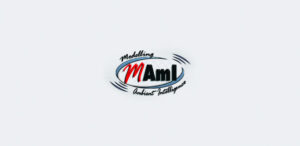
The research group Modeling Ambient Intelligence (MAmI) works on the computational paradigms of Ambient Intelligence (Environmental Intelligence) and Ubiquitous Computing (Ubiquitous Computing). Within this broad paradigm, the group develops lines of research related to mobile computing, intelligent user interfaces and context-aware applications. The group develops strongly applied research, specifically in the areas of care systems, health monitoring and behavior analysis.
The research projects recent are:
permanent members of the group:
Applied Ambient Intelligence and Adapted Technologies
Key areas of applications
Dr. Jose Bravo Rodriguez
Jose.Bravo@uclm.es
Phone: (+34) 926 295 300 ext. 3713
Fax: (+34) 926 295 354
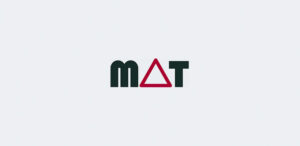
The Models and Algorithms in Transport Systems (MAT) group develops its research in the field of Operations Research. The objective pursued is to develop new optimization models applied to the planning, design and control of transport systems, in which the greatest number of relevant aspects of the problem are incorporated, so that they allow planners and/or managers to have of analytical tools that help them in the decision-making process. The most used mathematical tool for this purpose are mathematical programs with equilibrium constraints. These tools allow incorporating the behavior of users in the system against the decisions made.
Dr. Ricardo Garcia Rodenas
Ricardo.Garcia@uclm.es
Phone: (+34) 926 295 300 ext. 6222
Fax: (+34) 926 295 354

The Oreto research group was born in the Higher School of Computer Science of the University of Castilla-La Mancha, in Ciudad Real (Spain) in 1997. The group's work has been oriented, since its inception, in the application of knowledge in techniques of artificial intelligence to different fields and activities. Focusing on the use and development of soft computing systems, such as non-classical logics (multivalued and fuzzy), approximate reasoning, and qualitative and linguistic modeling, different research projects have been successfully developed. In these projects, different types of events and actions have been modelled, identified and induced in complex systems where uncertainty and vagueness are intrinsic elements.
Through the integration of sensors and video cameras, the following have been proposed: intelligent surveillance systems in large installations, the identification and classification of the different types of impacts that the fence that protects highways and motorways can suffer, as well as the description of the type of driving performed by a given driver.
The construction of information from the data obtained from sensors, databases, the web, video cameras, etc. requires a revision of the classic machine learning techniques. Terms like BIG DATA offer us a new perspective, with new characteristics and needs. To face this new challenge, the vision of the research group has incorporated the design and use of a multitude of small systems that collaborate, learn and coordinate in a decentralized and parallel manner, making use of swarm intelligence techniques to obtain multiclassifier systems.
Permanent members of the group:
Dr. Ms. Ester del Castillo Herrera.
Dr. Juan Giral Muiña
Dr. D. Luis Jimenez Linares
Dr. D. Juan Moreno Garcia
Dr. Luis Rodríguez Benítez.

Given the complexity of current problems, the experimental and theoretical approaches require a computational counterpart. It is in this context where the work of our group is focused: the creation and application of mathematical-computational models to the study of real problems of scientific or engineering interest. Our group tackles this task by building physical-mathematical models that we translate into efficient software tools.
Our current interest focuses on the treatment of systems of interrelated elements. This approach (complex networks), despite its novelty, has proven to be extremely useful for the analysis, interpretation and prediction of the behavior of complex systems. Typical examples of these are: the economic system, social networks, the Internet, the www, the metabolic system, the genome or the set of genetically based human diseases. The studies carried out in this field show the existence of a common behavior of the systems described by networks regardless of their physical nature (economic, social, biological or technological). In this broad field, we have focused our work on the development and application of computational models and techniques for the identification, description and control of the internal structure of complex networks. The key point in this context is the identification of groups of related entities (communities) in the network.
Permanent members of the group
Dr. Alfonso Nino Ramos
Dr. Sebastian Reyes Avila
In our group we consider the following lines of research:
Methodological
Applied
The applied component, in particular, represents an extraordinary way of collaborating with teams from other disciplines.
Dr. Alfonso Nino Ramos
Alfonso.nino@uclm.es
Tel.: (+34) 926 295 300 ext. 6474 / 3720
Fax: (+34) 926 295 354
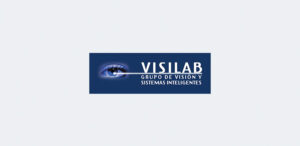
The group is made up of professors and researchers from the Department of Electrical, Electronic, Automation and Communications Engineering – IEEAC – (Systems Engineering and Automation area –ISA-) of the University of Castilla-La Mancha (UCLM) in Ciudad Real. Dedicated since 1999 to the development of Vision and Artificial Intelligence tools with applications to security systems and biometrics, quality control, diagnostic imaging, decision support systems and biomedical engineering.
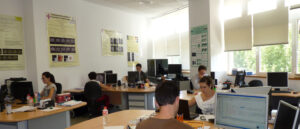
Dr. Jesús Salido Tercero (Prof. TU) @jsalido
Jesus.Salido@uclm.es
Ph.#: (+34) 926 295 427
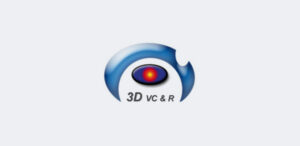
The 3D Visual Computing and Robotics group was created in 1998 within the Systems Engineering and Automation Area. Its work focuses on offering intelligent solutions through 3D sensors in multiple applications: digitization of parts (artistic, sanitary and manufacturing environments), digitization and reconstruction of large spaces (civil or heritage constructions, archaeological parks, etc.), intelligent interaction of robots with 3D vision and immersive augmented reality techniques. As a result of the work over the years, around a hundred papers have been published in the most relevant journals and conferences in the field of Computer Vision. Throughout these years, up to seven state and regional projects have been developed in a competitive system. Currently the group is made up of 12 researchers and has extensive technology in 3D digitization systems (laser systems and structured light), robots (industrial and mobile) and virtual reality systems (immersive and haptic).
Digitization and 3D sensory systems:
Vision-based robot interaction:
Immersive virtual reality:
Dr. Antonio Adam Oliver
Antonio.Adan@uclm.es
Phone: (+34) 926 295 300 ext. 3737
Fax: (+34) 926 295 354
| Cookie | Duration | Description |
|---|---|---|
| cookielawinfo-checkbox-advertisement | 1 year | Set by the GDPR Cookie Consent plugin, this cookie is used to record the user consent for the cookies in the "Advertisement" category. |
| cookielawinfo checkbox analytics | 11 months | This cookie is set by GDPR Cookie Consent plugin. The cookie is used to store the user consent for the cookies in the category "Analytics". |
| cookielawinfo checkbox functional | 11 months | The cookie is set by GDPR cookie consent to record the user consent for the cookies in the category "Functional". |
| cookielawinfo-checkbox-Necessary | 11 months | This cookie is set by GDPR Cookie Consent plugin. The cookies are used to store the user consent for the cookies in the category "Necessary". |
| cookielawinfo-checkbox-fastrs | 11 months | This cookie is set by GDPR Cookie Consent plugin. The cookie is used to store the user consent for the cookies in the category "Other. |
| cookielawinfo checkbox performance | 11 months | This cookie is set by GDPR Cookie Consent plugin. The cookie is used to store the user consent for the cookies in the category "Performance". |
| CookieLawInfoConsent | 1 year | Records the default button state of the corresponding category & the status of CCPA. It works only in coordination with the primary cookie. |
| viewed_cookie_policy | 11 months | The cookie is set by the GDPR Cookie Consent plugin and is used to store whether or not the user has consented to the use of cookies. It does not store any personal data. |
| Cookie | Duration | Description |
|---|---|---|
| _ga | 2 years | The _ga cookie, installed by Google Analytics, calculates visitor, session and campaign data and also keeps track of site usage for the site's analytics report. The cookie stores information anonymously and assigns a randomly generated number to recognize unique visitors. |
| _ga_660H2MJ19C | 2 years | This cookie is installed by Google Analytics. |
| _gat_gtag_UA_199993715_1 | 1 minutes | Set by Google to distinguish users. |
| _gid | 1 day | Installed by Google Analytics, _gid cookie stores information on how visitors use a website, while also creating an analytics report of the website's performance. Some of the data that are collected include the number of visitors, their source, and the pages they visit anonymously. |
| CONSENT | 2 years | YouTube sets this cookie via embedded youtube videos and registers anonymous statistical data. |
| Cookie | Duration | Description |
|---|---|---|
| VISITOR_INFO1_LIVE | 5 months 27 days | A Cookie Set by YouTube to Measure Bandwidth That Determine Whether The User Gets The New Or Old Player Interface. |
| YSC | Session | YSC Cookie is set by youtube and is used to track the views of embedded Videos on YouTube Pages. |
| yt remote connected devices | never | YouTube Sets This Cookie To Store The Video Preferences of The User Using Embedded YouTube Video. |
| yt remote device id | never | YouTube Sets This Cookie To Store The Video Preferences of The User Using Embedded YouTube Video. |

